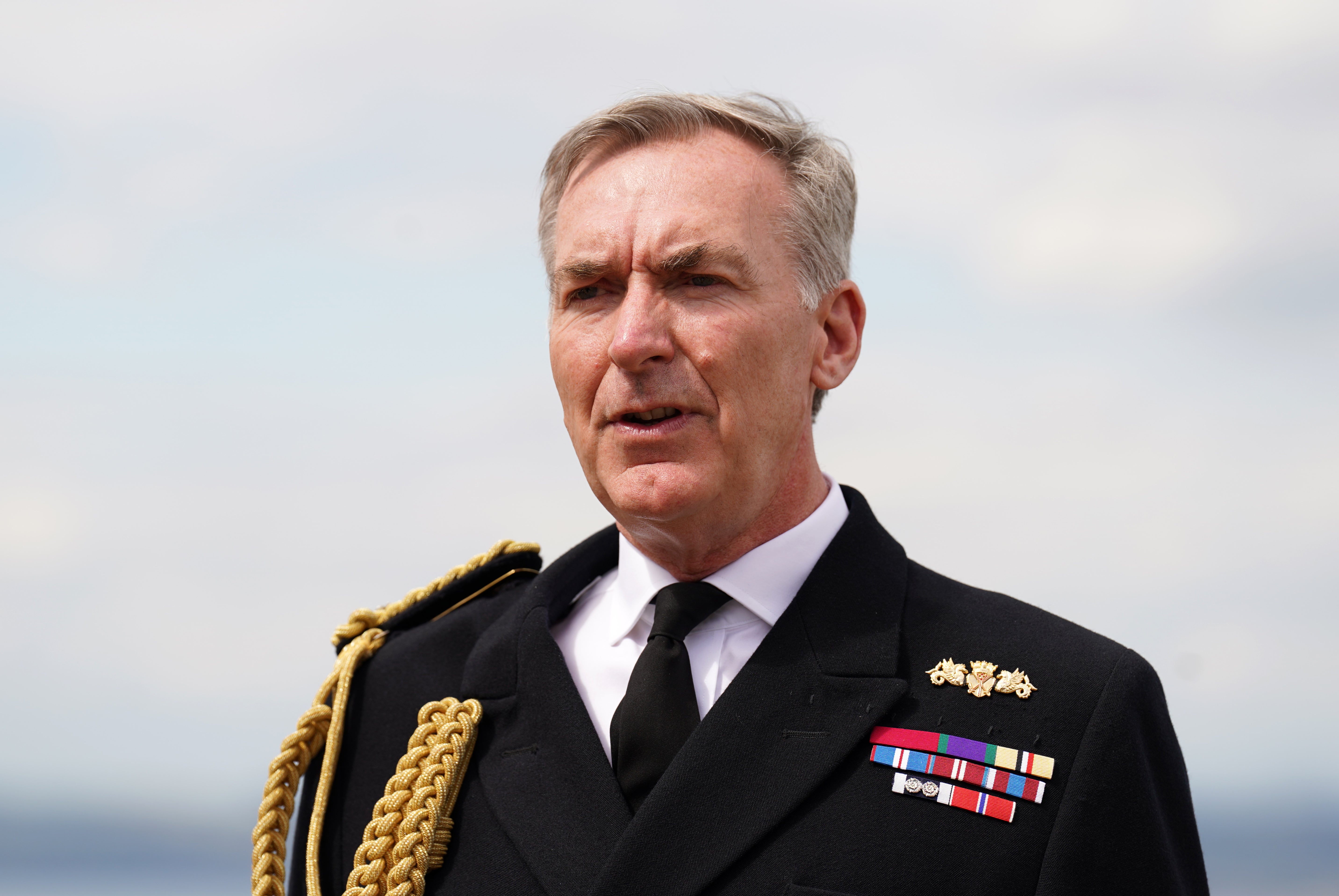Defence head admits ‘teething problems’ in £26-billion Australia warship project
Admiral Sir Tony Radakin faced scrutiny from senior military figures Down Under over the programme for nine warships.

Your support helps us to tell the story
From reproductive rights to climate change to Big Tech, The Independent is on the ground when the story is developing. Whether it's investigating the financials of Elon Musk's pro-Trump PAC or producing our latest documentary, 'The A Word', which shines a light on the American women fighting for reproductive rights, we know how important it is to parse out the facts from the messaging.
At such a critical moment in US history, we need reporters on the ground. Your donation allows us to keep sending journalists to speak to both sides of the story.
The Independent is trusted by Americans across the entire political spectrum. And unlike many other quality news outlets, we choose not to lock Americans out of our reporting and analysis with paywalls. We believe quality journalism should be available to everyone, paid for by those who can afford it.
Your support makes all the difference.Britain’s head of the armed forces has assured Australia that a troubled British-designed frigate project is on track despite “teething problems”.
The £26-billion-pound project which the British company BAE Systems won the Australian contract for four years ago was under renewed focus during Chief of Defence Staff Admiral Sir Tony Radakin’s visit Down Under.
In an interview with the news service of the Australian Broadcasting Corporation (ABC), Sir Tony conceded that the UK’s parent programme was experiencing “teething problems” but insisted the joint project was on track.
“The overall programme is in a good shape, but what you inevitably see with a first-of-class, with these high-end designs… are teething problems with the first ship,” he said.
“Those are being resolved and that’s all going ahead very, very well.”
BAE Systems, the UK’s largest defence contractor, won the project to produce nine high-tech, anti-submarine frigates in 2018 after besting rival Spanish and Italian designs in a fierce competition.
The fleet of “Hunter class” global combat ships are based on the new British Type 26 warship. Production on the ships began in Adelaide in 2020 and, at the time of BAE winning the contract, were expected to enter service before 2030.
However, according to ABC News, concerns are growing over delays and technical problems with the project.
Sir Tony, who is currently in Australia for the Indo-Pacific Chiefs of Defence (CHODs) Conference in Sydney, said more visits to Australia from Royal Navy nuclear-powered submarines were likely as work continues on the Aukus project.
In November BAE Systems denied “supply chain pressures” from the pandemic had had any impact on performance or operations for 2021.
The defence giant said it had a “strong” pipeline of opportunities and stressed that there is “continued demand” for its capabilities, with defence largely resilient to the impact of the pandemic.
At the time, the contractor said it was particularly well positioned to be boosted by increased defence spending in the Asia Pacific region.